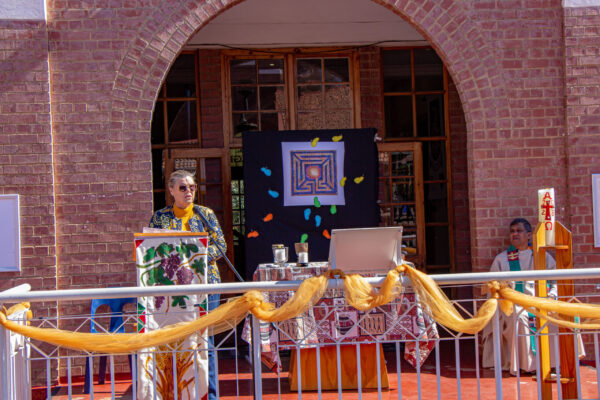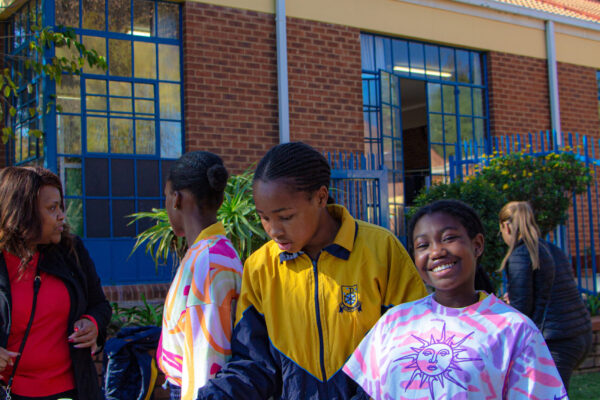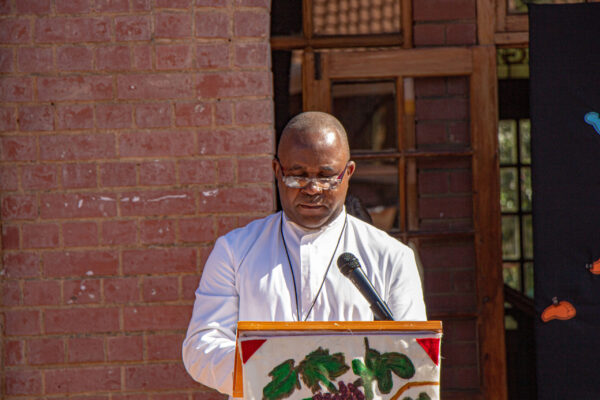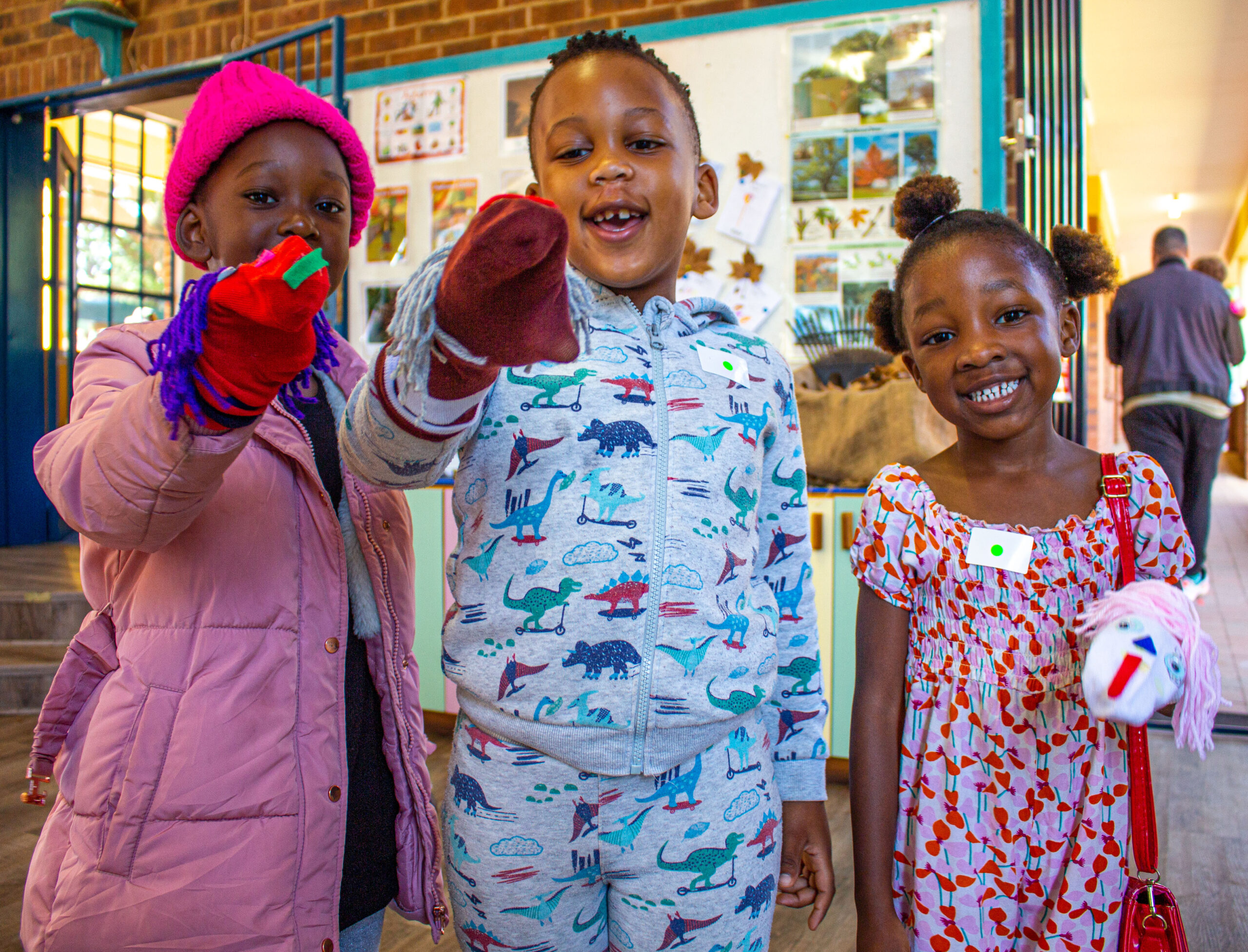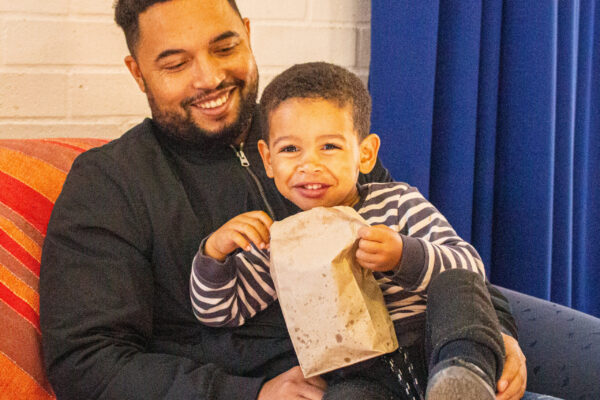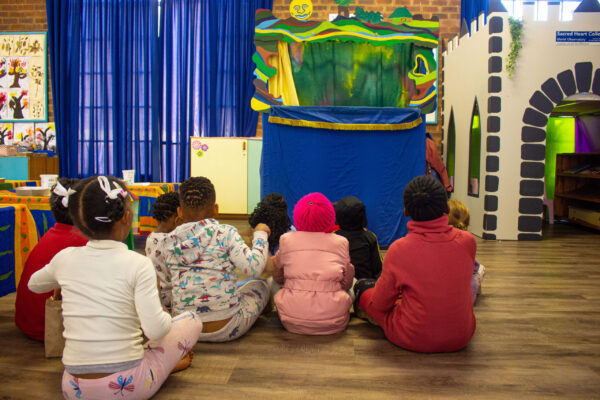
Leila Wakefield Grade 12
Mass was a festive affair with the rhythm of the marimbas calling us, and welcoming us, to celebrate. It was a joy to have the Brothers join us, and to have Br John with his guitar. It was good to have our parents and other special guests too. Thinking about how we as Marists are called to grow our awareness of those in the margins, and to work to include the ones we other, was the theme of our reflection. The children sang beautifully, from preschool to Matric, and the student reflections were thought provoking. Fr Mokesh led with compassion and challenge, and as we led out we were thoroughly warmed through in body and soul.
We Marists of Champagnat, are invited to live in unity and to oppose marginalization on a small and large scale. To marginalize someone is to treat individuals or specific groups of people as insignificant and inferior to others. We see people being marginalized in society based on race, ethnicity, religious beliefs, gender, sexuality and economic status.
We are also guilty of marginalization on a smaller level, we do it at school, in our neighborhoods, and even in our own homes when we exclude people for the core things that make up their identity and make them feel as if they are less than us. These people’s rights, voices and humanity are denied, and as a result suffer at the hands of others for their whole lives.
Every single one of us took part in putting together a puzzle for today’s mass. Eventually you would have noticed that on every puzzle is a picture of a maze. A maze is representative of this journey of life; there are dead ends, twisting corners that confuse you, and the reward at the end takes forever to reach. I want you to imagine yourself in a literal maze.
Imagine what this journey to the end or the glinting gold will be like. Will it be hard? Frustrating? Frightening? Or will it be easy? Imagine what it will be like if you were in this maze alone. Would it be any better if you were with a group of people? Picture yourself in this maze with a group of people that always exclude you, make you feel like you have no value.
How would you feel? How would you feel when the leader of this group makes sure that everyone does their absolute best to exclude you, dehumanize you, hurt you, and exploit you? It’s unfair, right? It’s unfair when you’re the only one that gets treated this way. Will you endure it the entire time you are in this huge, spine-chilling maze with people that constantly bury your spirit deeper and deeper? Or will you have the courage and heart to defend yourself against them?
Congratulations, you have just completed a small lesson on empathy!
With a similar perspective, I want you to question why we should bring people from the margins of society closer to us. We need to dig into the humanity that is constantly squashed by the laws and people that use their power over us. While injustice is common, one should never accept justice as common. As humans that are all owned by the earth and the universe, it is our duty to fight injustices like marginalization with all our strength and heart.
As humans that are connected to the earth, we should have love for our earth and its people. And because of this love, we need to exercise our right to criticize each other’s actions, hold those in power accountable, and draw people that were cast aside closer to us and our hearts.
This should not just make up our own moral center, but also how we identify as Marists. Being Marist connects us to our spirituality, and from spirituality comes reflection. Reflection is key to helping us realize our role in this journey of life, and it helps us realize what we need to do to create a change in our community and greater society. Without reflection, we become burnt out when we are constantly running towards a world that we want to create. Reflect and regain your fire, spirit, and sight of the path you need to follow and people you give your strength to.
Saint Marcellin Champagnat is an example for alleviating issues of marginalization as he established schools in rural areas where children had no access to education.He made this his entire life’s goal. As extensions of Champagat’s work and his vision, and as people that are interconnected with each other, exercise your right to criticize and demand change where you see injustice. We are Champagnat today for ourselves, tomorrow for the world we want to live in, and always in our hearts.

